Homemade cleaner recipes – sounds a bit like your grandma’s secret potion, right? Well, in a way, it is! For generations, resourceful folks have been whipping up their own cleaning solutions, long before the days of brightly colored bottles lining supermarket shelves. Think back to a time when natural ingredients were the norm, and resourcefulness was a way of life. These weren’t just about saving money; they were about harnessing the power of nature to keep our homes sparkling clean.
But why should you, in this age of convenience, bother with homemade cleaner recipes? Because, my friend, you deserve to know exactly what you’re spraying around your home! Many commercial cleaners are packed with harsh chemicals that can irritate your skin, pollute the air, and even harm your family and pets. Plus, let’s be honest, those bottles can be expensive! I’m here to show you how to create effective, eco-friendly, and budget-friendly cleaning solutions using ingredients you probably already have in your pantry. Get ready to ditch the chemicals and embrace a cleaner, healthier, and more sustainable way to clean!
This article will guide you through some easy-to-follow recipes that will leave your home sparkling and smelling fresh, all while being kind to the environment and your wallet. Let’s get started!
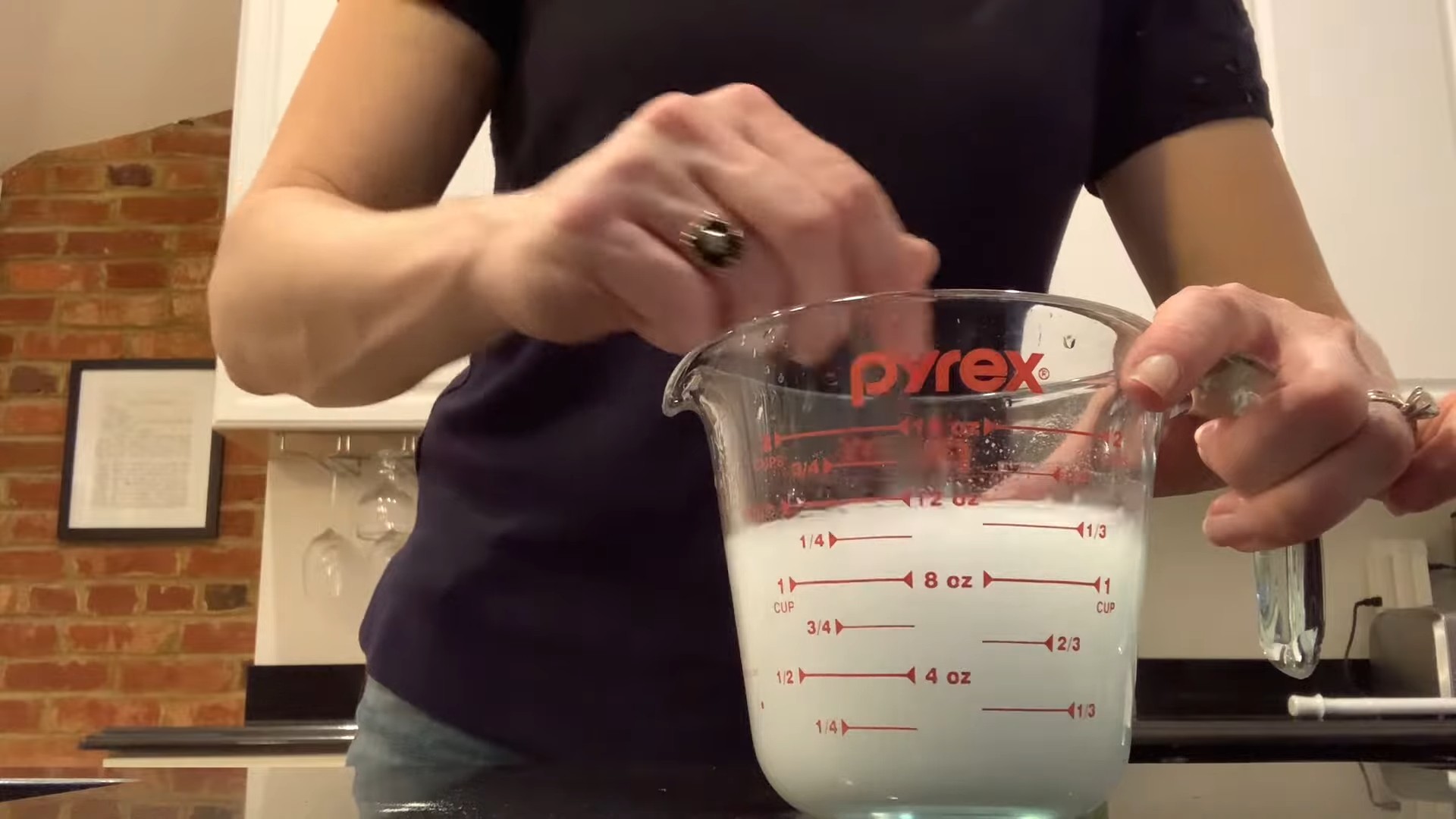
DIY Cleaning Power: Natural Recipes for a Sparkling Home
Okay, let’s ditch those harsh chemicals and whip up some amazing homemade cleaners! I’ve been experimenting with natural cleaning solutions for years, and I’m excited to share my favorite recipes with you. Not only are these cleaners better for the environment and your health, but they’re also incredibly effective and budget-friendly. Get ready to transform your cleaning routine!
General Supplies You’ll Need
Before we dive into the recipes, let’s gather some essential supplies. Having these on hand will make the whole process much smoother.
* Spray Bottles: Invest in a few good quality spray bottles. I like to label mine clearly to avoid any mix-ups.
* Microfiber Cloths: These are fantastic for cleaning various surfaces without leaving streaks.
* Glass Jars: Perfect for storing larger batches of cleaning solutions.
* Measuring Cups and Spoons: Accuracy is key for some recipes, so keep these handy.
* Funnel: Makes transferring liquids into bottles much easier.
* Essential Oils (Optional): Add a few drops for a pleasant scent and potential antibacterial properties. Lavender, lemon, tea tree, and eucalyptus are great choices.
* Baking Soda: A natural deodorizer and mild abrasive.
* White Vinegar: A powerful cleaner and disinfectant.
* Castile Soap: A gentle and versatile soap made from plant oils.
* Lemon Juice: A natural degreaser and brightener.
* Borax (Optional): A natural mineral that boosts cleaning power (use with caution and research safety guidelines).
* Washing Soda (Sodium Carbonate): More alkaline than baking soda, great for laundry and tough stains.
All-Purpose Cleaner
This is my go-to cleaner for almost everything! It’s safe for most surfaces, but always test in an inconspicuous area first, especially on delicate materials like wood.
Ingredients:
* 1/2 cup white vinegar
* 1/4 cup baking soda
* 1 liter hot water
* 10-20 drops essential oil (optional)
Instructions:
1. Combine Ingredients: In a spray bottle, combine the white vinegar and baking soda. Be prepared for it to fizz!
2. Add Water: Slowly add the hot water to the mixture.
3. Add Essential Oils (Optional): If you’re using essential oils, add them now.
4. Shake Well: Secure the spray nozzle and shake the bottle well to ensure all ingredients are mixed.
5. Use: Spray the cleaner onto the surface you want to clean and wipe with a microfiber cloth.
Glass and Window Cleaner
Say goodbye to streaks with this simple and effective glass cleaner!
Ingredients:
* 1/4 cup white vinegar
* 4 cups water
* Few drops of dish soap (optional)
Instructions:
1. Combine Ingredients: In a spray bottle, combine the white vinegar, water, and dish soap (if using).
2. Shake Well: Secure the spray nozzle and shake the bottle well.
3. Spray and Wipe: Spray the cleaner onto the glass or window and wipe with a clean microfiber cloth or newspaper for a streak-free shine.
Toilet Bowl Cleaner
This cleaner uses the power of baking soda and vinegar to fizz away grime and odors.
Ingredients:
* 1 cup baking soda
* 1/2 cup white vinegar
* 10 drops tea tree essential oil (optional, for extra disinfecting power)
Instructions:
1. Sprinkle Baking Soda: Sprinkle the baking soda into the toilet bowl, making sure to coat the sides.
2. Pour Vinegar: Slowly pour the white vinegar over the baking soda. It will fizz!
3. Let it Sit: Let the mixture sit for at least 15-20 minutes. For tough stains, you can let it sit overnight.
4. Scrub and Flush: Scrub the toilet bowl with a toilet brush and then flush.
Shower and Tub Cleaner
This cleaner helps prevent soap scum buildup and keeps your shower sparkling.
Ingredients:
* 1 cup white vinegar
* 1 cup water
* Spray bottle
Instructions:
1. Heat Vinegar: Heat the white vinegar in the microwave for about 1-2 minutes, until it’s warm (not boiling).
2. Combine Ingredients: In a spray bottle, combine the warm vinegar and water.
3. Spray and Let Sit: Spray the cleaner onto the shower and tub surfaces and let it sit for 15-20 minutes.
4. Scrub and Rinse: Scrub the surfaces with a sponge or brush and then rinse with water.
Drain Cleaner
This is a great alternative to harsh chemical drain cleaners. It uses the power of baking soda and vinegar to break down clogs.
Ingredients:
* 1/2 cup baking soda
* 1 cup white vinegar
* Hot water
Instructions:
1. Pour Baking Soda: Pour the baking soda down the drain.
2. Pour Vinegar: Pour the white vinegar down the drain after the baking soda.
3. Let it Fizz: Let the mixture fizz for 30 minutes.
4. Flush with Hot Water: Flush the drain with a pot of boiling water. Repeat if necessary.
Furniture Polish
This recipe is for wood furniture. Always test in an inconspicuous area first to ensure it doesn’t damage the finish.
Ingredients:
* 1/4 cup olive oil
* 1/2 cup white vinegar or lemon juice
* Spray bottle
Instructions:
1. Combine Ingredients: In a spray bottle, combine the olive oil and white vinegar or lemon juice.
2. Shake Well: Secure the spray nozzle and shake the bottle well.
3. Spray and Wipe: Lightly spray the cleaner onto a soft cloth and wipe the furniture. Buff with a clean, dry cloth.
Laundry Detergent
Making your own laundry detergent is surprisingly easy and can save you a lot of money.
Ingredients:
* 1 cup washing soda
* 1 cup borax (optional, see safety notes above)
* 1 bar of castile soap, grated
Instructions:
1. Grate the Soap: Grate the castile soap using a cheese grater.
2. Combine Ingredients: In a large bowl, combine the washing soda, borax (if using), and grated castile soap.
3. Mix Well: Mix the ingredients thoroughly.
4. Store: Store the detergent in an airtight container.
5. Use: Use 1-2 tablespoons per load of laundry.
Dish Soap
This homemade dish soap is gentle on your hands and effective at cleaning dishes.
Ingredients:
* 1/2 cup grated castile soap
* 1/4 cup water
* 1 tablespoon white vinegar
* 10-20 drops essential oil (optional)
Instructions:
1. Melt the Soap: Gently melt the grated castile soap in a double boiler or microwave (heat in short intervals, stirring in between).
2. Combine Ingredients: Once the soap is melted, remove from heat and stir in the water, white vinegar, and essential oils (if using).
3. Cool and Thicken: Let the mixture cool and thicken. It will thicken as it cools.
4. Store: Store the dish soap in a pump bottle.
Oven Cleaner
This is a powerful, non-toxic way to clean your oven. It requires some time, but the results are worth it!
Ingredients:
* 1/2 cup baking soda
* Water
* White vinegar
Instructions:
1. Make a Paste: Mix the baking soda with enough water to form a thick paste.
2. Coat the Oven: Spread the paste all over the inside of your oven, avoiding the heating elements.
3. Let it Sit: Let the paste sit for at least 12 hours, or overnight.
4. Scrub and Wipe: After letting it sit, scrub the oven with a sponge or scraper to remove the paste and grime.
5. Spray with Vinegar: Spray the inside of the oven with white vinegar. This will react with any remaining baking soda and make it easier to remove.
6. Wipe Clean: Wipe the oven clean with a damp cloth.
Cutting Board Cleaner and Sanitizer
Keep your cutting boards clean and sanitized with this simple solution.
Ingredients:
* Lemon
* Coarse salt
Instructions:
1. Sprinkle Salt: Sprinkle coarse salt over the cutting board.
2.
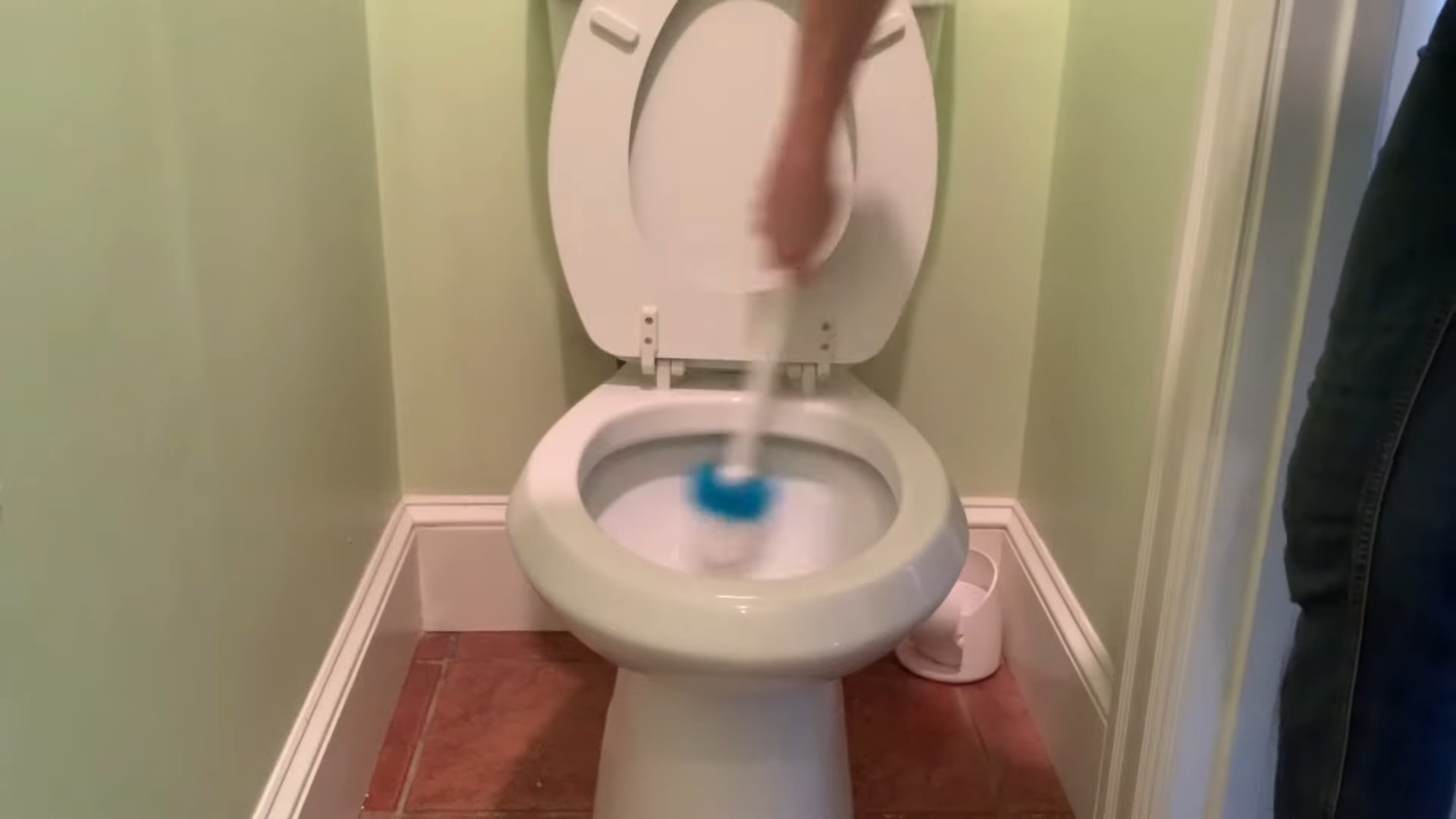
Conclusion
So, there you have it! Ditching the harsh chemicals and embracing these simple, effective, and budget-friendly homemade cleaner recipes is more than just a trend; it’s a conscious choice for a healthier home and a happier planet. We’ve explored how easy it is to whip up powerful cleaning solutions using ingredients you likely already have in your pantry. From tackling stubborn grime to gently disinfecting surfaces, these recipes offer a versatile and customizable approach to cleaning.
But why is this a must-try? Because it empowers you to take control of what you’re bringing into your home. You know exactly what’s in your cleaner, eliminating the worry about hidden toxins and allergens. Plus, you’ll be amazed at how effective these natural ingredients can be. Vinegar cuts through grease, baking soda scrubs away stains, and essential oils leave behind a fresh, natural scent. It’s a win-win!
Don’t be afraid to experiment and adapt these recipes to suit your specific needs and preferences. For instance, if you’re not a fan of the vinegar smell, try adding a few extra drops of your favorite essential oil, like lemon or lavender. For tougher stains, create a paste of baking soda and water and let it sit for a bit before scrubbing. You can also infuse your vinegar with citrus peels for a more pleasant scent and added cleaning power. Consider using castile soap as a base for many cleaners, offering a gentle yet effective clean.
The possibilities are endless! Think about creating a specialized cleaner for your bathroom tiles using tea tree oil for its antifungal properties, or a gentle all-purpose cleaner with lavender for a calming aroma. The beauty of these homemade cleaner recipes lies in their adaptability.
We truly believe that once you try these homemade cleaner recipes, you’ll never go back to store-bought alternatives. Not only will you be saving money and reducing your environmental impact, but you’ll also be creating a safer and healthier environment for yourself and your loved ones.
So, what are you waiting for? Gather your ingredients, grab your spray bottles, and get ready to experience the magic of natural cleaning. We’re confident that you’ll be thrilled with the results.
We’re eager to hear about your experiences! Share your favorite variations, tips, and tricks in the comments below. Let’s build a community of eco-conscious cleaners and inspire others to make the switch. Don’t forget to tag us in your social media posts using #HomemadeCleaners and show off your sparkling clean homes! Let’s spread the word about the power of natural cleaning and create a healthier, happier world, one homemade cleaner recipe at a time.
Frequently Asked Questions (FAQ)
1. Are homemade cleaners as effective as store-bought cleaners?
Yes, absolutely! Many homemade cleaner recipes utilize ingredients with proven cleaning properties. For example, vinegar is a natural disinfectant and degreaser, baking soda is a mild abrasive and deodorizer, and essential oils possess antibacterial and antifungal properties. While they might not contain the same harsh chemicals as some commercial cleaners, they are often just as effective, and sometimes even more so, for everyday cleaning tasks. The key is to use the right recipe for the specific cleaning job. For heavy-duty cleaning, you might need to let the solution sit for a longer period or use a bit more elbow grease.
2. What are the best essential oils to use in homemade cleaners?
The best essential oils for homemade cleaners depend on your preferences and the desired cleaning effect. Some popular choices include:
* **Lemon:** Known for its degreasing and disinfecting properties, as well as its uplifting scent.
* **Tea Tree:** A powerful antibacterial and antifungal agent, ideal for bathroom and kitchen cleaning.
* **Lavender:** Offers a calming aroma and has antiseptic properties, great for all-purpose cleaning.
* **Eucalyptus:** Effective for disinfecting and deodorizing, particularly useful in bathrooms.
* **Peppermint:** Provides a refreshing scent and has antimicrobial properties.
* **Orange:** Similar to lemon, it’s a great degreaser and has a cheerful scent.
Always use pure, high-quality essential oils and dilute them properly before use. A general guideline is to use 10-20 drops of essential oil per cup of water or vinegar.
3. How should I store homemade cleaners?
Store your homemade cleaners in clean, labeled spray bottles or containers. It’s crucial to label them clearly to avoid confusion, especially if you have children or pets. Keep them out of reach of children and pets, just as you would with commercial cleaners. Store them in a cool, dark place to preserve their effectiveness. Avoid storing them in direct sunlight or extreme temperatures. Glass bottles are a great option as they are non-reactive and environmentally friendly.
4. Can I use homemade cleaners on all surfaces?
While most homemade cleaners are safe for a wide range of surfaces, it’s always a good idea to test them in an inconspicuous area first, especially on delicate or porous materials like marble, granite, or wood. Avoid using vinegar on natural stone surfaces, as it can etch and damage them. Baking soda can be abrasive, so use it with caution on delicate surfaces. Always read the care instructions for your surfaces before using any cleaner, homemade or commercial.
5. How long do homemade cleaners last?
The shelf life of homemade cleaners depends on the ingredients used. Cleaners made with water and essential oils should be used within a few weeks, as they can be prone to bacterial growth. Cleaners made with vinegar or alcohol have a longer shelf life, typically several months. If you notice any changes in color, odor, or consistency, it’s best to discard the cleaner and make a fresh batch.
6. Are there any safety precautions I should take when making and using homemade cleaners?
Yes, safety is paramount. Always wear gloves when handling cleaning solutions, especially if you have sensitive skin. Avoid mixing different cleaning agents together, as this can create dangerous fumes. For example, never mix vinegar and bleach, as this produces chlorine gas, which is highly toxic. Ensure proper ventilation when cleaning, especially in enclosed spaces. Keep homemade cleaners out of reach of children and pets. If you accidentally ingest a homemade cleaner, contact poison control immediately.
7. Can I use tap water to make homemade cleaners?
While you can use tap water, distilled water is generally recommended for homemade cleaners. Distilled water is free of minerals and impurities, which can prolong the shelf life of your cleaner and prevent residue buildup on surfaces. If you don’t have distilled water, you can boil tap water and let it cool before using it.
8. What can I use instead of vinegar in homemade cleaners?
If you’re not a fan of the vinegar smell or are looking for an alternative, you can try using lemon juice or citric acid. Both have similar cleaning properties to vinegar and can be used in many of the same recipes. Another option is to use rubbing alcohol (isopropyl alcohol), which is a disinfectant and degreaser. However, be sure to use it in a well-ventilated area, as it can be flammable.
9. How can I make my homemade cleaners smell better?
Adding essential oils is the easiest way to improve the scent of your homemade cleaners. You can also infuse your vinegar with citrus peels or herbs for a more pleasant aroma. Simply place the peels or herbs in a jar of vinegar and let it sit for a few weeks before straining and using the infused vinegar in your cleaning recipes.
10. What are some good resources for finding more homemade cleaner recipes?
There are many websites and books dedicated to natural cleaning and DIY recipes. A simple online search for “homemade cleaner recipes” will yield a wealth of information. Look for reputable sources that provide clear instructions and safety guidelines. You can also find inspiration and ideas on social media platforms like Pinterest and Instagram. Remember to always do your research and choose recipes that are appropriate for your needs and preferences.


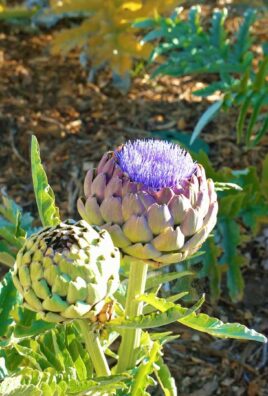
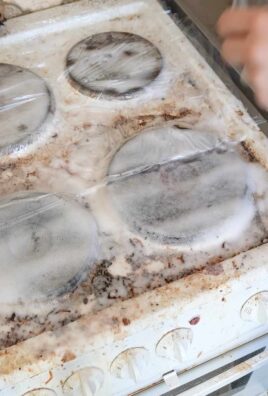
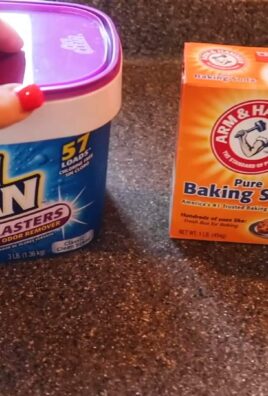
Leave a Comment